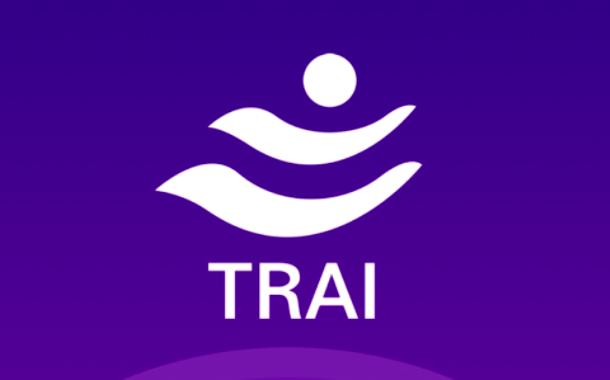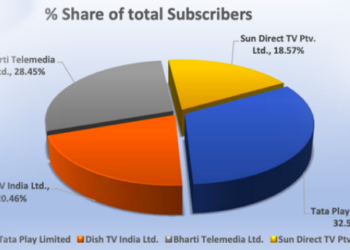New Delhi: The Telecom Regulatory Authority of India (TRAI) has today issued its recommendations on “Issues relating to Uplinking and Downlinking of Television Channels in India”. In its recommendations TRAI has stated that Auction for grant of permissions for unlinking and downlinking of TV channels is not feasible.
TRAI received a reference from The Ministry of Information and Broadcasting (MIB) dated 21st August, 2017 , in which MIB has stated that since the present uplinking guidelines and downlinking guidelines that came into effect from 5th December 2011 are now more than 5 years old. MIB felt a need to review/ amend some of the provisions of these guidelines to ensure healthy growth of the broadcasting sector, taking into account the change in technology, market scenarios, and the lesson learned in the last few years of their operations.
MIB has also sought recommendations of the Authority, under Section 11 of the TRAI Act, 1997, on various issues listed in the aforesaid letter. These issues primarily relate to permission for uplinking and downlinking of satellite TV channels, setting up of teleports and other related issues.
On 19th December 2017, TRAI issued a consultation paper on “Issues relating to Uplinking and Downlinking of Television Channels in India” and sought suggestions from stakeholders on the issues listed in the reference of MIB. 38 comments and 1 counter-comment were received by the authority.
After considering all comments from stakeholders through an Open House Discussion held on 11th April 2018, in Delhi received TRAI has finalised its recommendations as below
Issues related to uplinking and downlinking of satellite TV channels
- No change in the existing definitions of ‘News and Current Affairs TV channels’, and `Non-News and Current Affairs TV channels’ mentioned in the existing uplinking and downlinking guidelines dated 05.12.2011 and also remains the same
- Existing administrative system for grant of permissions for uplinking and downlinking of TV channels should be continued and should be streamlined and the Auction is not feasible for the same
- Permission fee and Entry fee for uplinking and downlinking permission remains unchanged and while TRAI reiterated its recommendations on “Ease of Doing Business in Broadcasting Sector” dated 26th February 2018 sent to the Government wherein several measures have been recommended for streamlining the existing process of granting permissions for uplinking and downlinking of TV channels.
- The authority recommends the Annual License fee for uplinking and downlinking permissions to be enhanced as follows
| Permission | Annual Permission Fee |
| · Uplinking of TV Channel from Indian Soil | · Rs. 3 lakh per annum |
| · Downlinking of TV Channel uplinked from Indian soil | · Rs. 7.5 Lakh per annum |
| · Downlinking of TV Channel uplinked from Foreign Soil | · Rs. 22.5 Lakh per annum |
- TRAI also recommends that the Encryption of broadcast of FTA channels should not be mandated and it should be left to the broadcasters providing FTA channels.
- Transfer of permissions should not be permitted between two different companies. In case of merger and acquisition, as recognised under the Companies Act, 2013 or any other applicable law(s), transfer of permissions should be permitted after following the due process. Transfer of permission of TV channels to its subsidiary company or holding company or subsidiary company of the holding company should be allowed freely, provided such company has a valid uplinking and downlinking permission. A lock-in period of one year from the date of the operationalisation of a channel for the transfer of permission of such channel.
Issues related to Teleports
- The amount of onetime non-refundable processing fee levied for seeking permission for establishing a teleport remains unchanged and there is no Entry fee for granting permission for establishing teleport.
- TRAI recommends a fixed annual license fee of Rs 3 lakh for each antenna to be charged.
- There is no restriction to the number of teleports in India and their location should be left to its operators subject to site clearance from WPC wing of DoT.
















